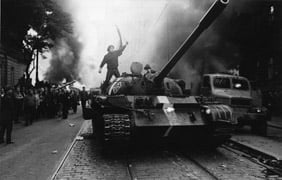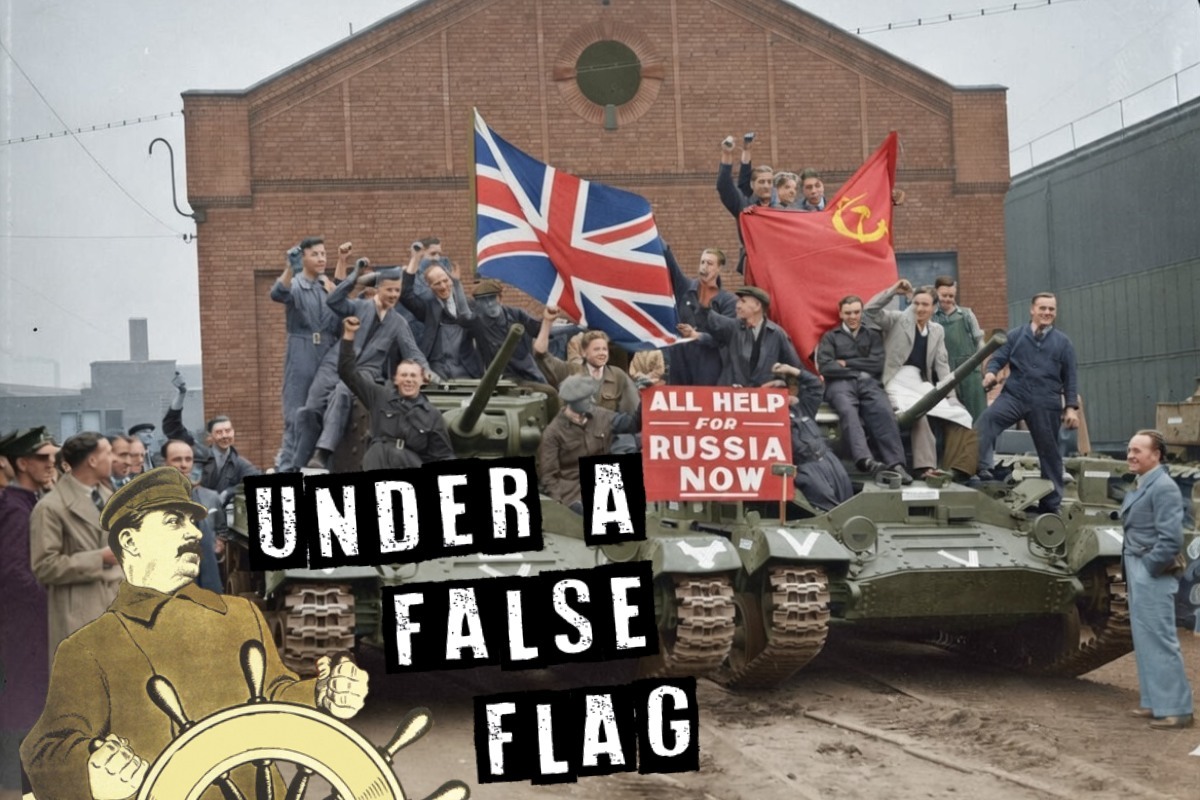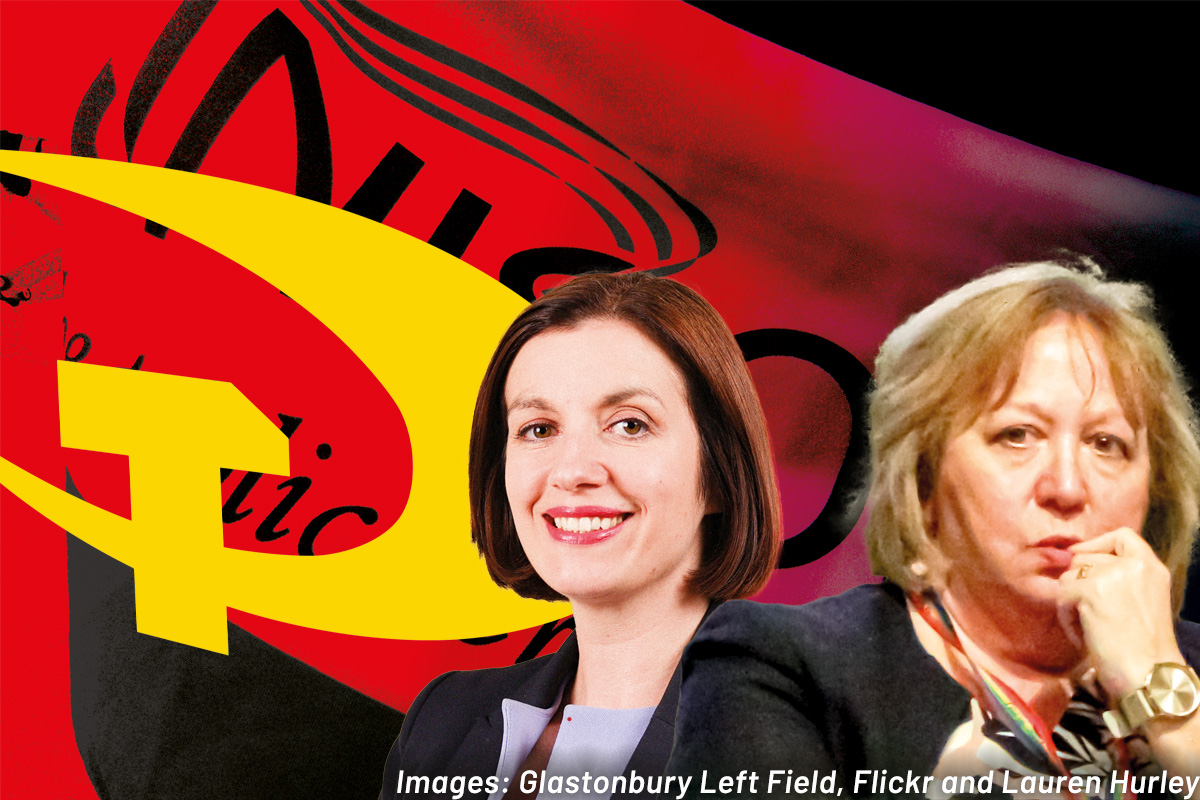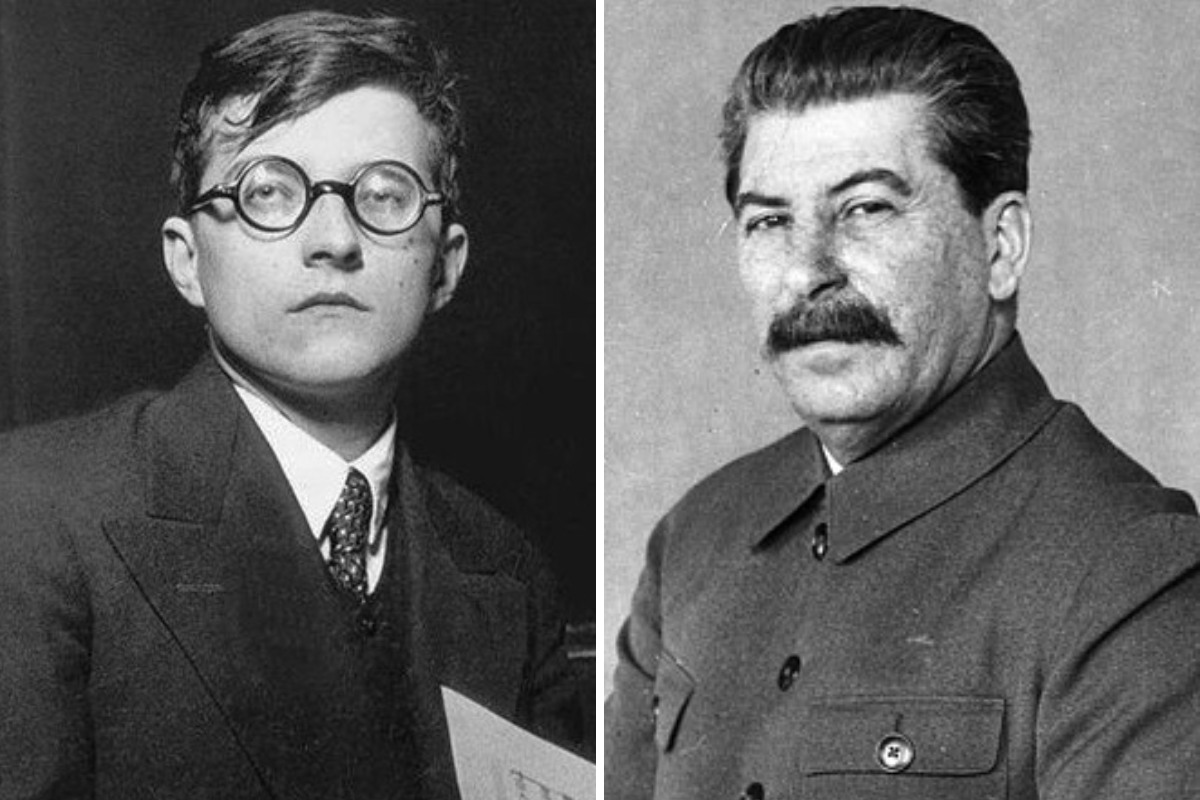To mark the 40th
anniversary of the invasion of Czechoslovakia,
we are here reprinting an article by Alan Woods, first written on September 4,
1968, and published in the Winter edition of the Spark, in which he clearly
relates the momentous events that shook the Stalinist regimes and explains
their significance.
The Meaning of
Dubcek
The movement in Czechoslovakia began last summer with a stormy session of the
Czech Writers’
Union, which endorsed resolution
in support of the protest of
the Soviet author Solzhenitsyn
against censorship, and affirmed
that their work would
‘never serve a strictly
propagandist function’. The ferment among the Czech intelligentsia rapidly spread to the students, who
demonstrated in the winter
when the electricity failed and
the lights went out in
their hostels. They paraded through the streets with posters bearing the cryptic slogan: "Give us light."
The Secret Police brutally attacked the demonstration, wounding several
students. It was a measure of the nervousness of the bureaucracy then
that they strove to
pacify the students by
offering to pay the hospital
bills of the injured demonstrators.
This offer was met by the
bold demand that those responsible
for the outrage must be
punished and the press must
publish all the facts about the incident. The student leaders warned
that if the papers did not tell the truth
they would march to
the factories and explain the
facts to the workers.
The split in the bureaucracy and the fall of Novotny which followed
these events cannot be explained simply by the actions of the writers
and students, but must be seen against a background of the slowing
down of economic
growth and the crisis of the
Czech economy in the last
few
years. The crazy attempt on the part of the various national Stalinist
bureaucracies of Eastern Europe to
build socialism in ‘their own’
countries has led to a situation
where each state attempts to
construct every branch of
industry ‘independently’ and without consideration of the inevitable
restrictions imposed by the old capitalist national boundaries.
Thus, throughout the Fifties, the Czech bureaucracy tried to force
the development of heavy
industry, to the
detriment of consumer production, leading to a chronic imbalance
between industry and
agriculture, a lop-sided
development of industry
itself,
chronic shortages of consumer goods, and unbelievably, actual
overproduction in a nationalised, planned
economy! The myopic planning
‘from above’ which decreed production of heavy industrial products, and
still
more heavy industrial
products, together with all the inefficiency, bungling and
mismanagement of a bureaucratised economy, led to the widespread
stockpiling of goods,
which often became
useless.
The necessity of ‘meeting the plan’ led to the replacement of
quality with quantity: so that those consumer goods which were
produced, could not be
sold on the world
market, while their price put them beyond the reach of the Czech
workers. A State Commission in 1964 reported that of
4,000 production
lines inspected in 50 factories,
only one-third could be
judged
of competitive standard. The Czech economy, which had been the
showpiece of the Stalinist world in the Fifties, was
grinding to a halt, clogged
with bureaucracy.
The need to rationalize the economy, plus fear of the consequences
among the Czech workers of a further slowing down of the productive forces, led
to a split in the upper layers of the Czech bureaucracy and the emergence of
the Dubcek wing of ‘reformers’, so beloved of the Western capitalist press. For
Marxists, however, all this journalistic sentimentality must be replaced by a
simple question: whom did Dubcek represent? Whose interests did his programme
serve?
What was Dubcek doing in all those years of Novotny Stalinism? Why was it only in 1967-68 that he found his tongue and
suddenly discovered
all the evils of the old
regime?
Some of his ‘liberal’ friends had very sudden conversions indeed. For instance, Jiri Hendrych, the Party spokesman on
cultural affairs, who in
January was preaching sweetness
and light and calling for
‘fresh
approaches’ to the creative intelligentsia, at last year’s Writers’ Congress, stormed out of the hall, with the words: "I
have finally reached the
end of my patience with
your
people." Subsequently, he was behind the expulsion from the Party of a number of militant writers.
The main plank of Dubcek’s programme was economic reform. His proposals
broadly agreed with the ‘Libermanist’ policies introduced in East
Germany in 1963 and in Russia in 1965. Under the scheme the directives
from
the central plan would give
way to plans drawn up by
individual
enterprises or associations of enterprises. Far from abolishing the
privileges and wealth of the bureaucrats,
Dubcek aims to increase
the wage differentials, to grant ‘incentives’ to the factory managers.
The move is, in fact, a Bonapartist manoeuvre
on the part of the tops
of the regime to balance
on
one set of bureaucrats (the factory managers, ‘technologists’, etc.),
as against a different layer (state bureaucrats).
An article in the ‘Sunday Times’ (21st July) graphically revealed the social stratum on
which Dubcek leans for
his stable support. In an
interview,
a Czech factory director
gave,
his reasons for backing the new leadership:
"We have
much more freedom now in this factory. We don’t have the same old idiots
interfering in our production. We can find our own customers. We don’t have any
problems with spare parts or deliveries.But wages
are a problem. The average worker gets 2,100 crowns monthly (roughly £50), but
the engineers only get six per cent more. We need a differential of at least 30
per cent…We have our
own army and police. If somebody tries to wreck socialism here in Czechoslovakia,
our police and army can deal with them. We don’t need the Russians to help
us…"
The
contemptuous attitude of our ‘liberal’ factory director to the workers stands
exposed in the next episode.
At this
point the telephone rang and Mr Kalousek answered it. Afterwards he turned to
me with a sigh and said: "It’s one of the workers wanting to ask me about a new
resolution. You know I don’t agree with making these resolutions, even though I
agree with what they say. People get all excited, work stops and that costs
money."
Novotny
attempted to appeal to the factories for support and to turn the working class
against the ‘bourgeois intellectuals’. Early this year, Western newspapers
reported that many workers were suspicious of Dubcek, and with good reason. It
is true that the ‘Libermanisation’ of the Russian economy, as expected by the
Marxists, has had the immediate effect of boosting the Soviet economy. Last
year the gross industrial production of the USSR grew by 10, the highest figure
since 1959. There has been a marked improvement in the production of consumer
goods. But Khrushchev’s reforms of 1957 also had a similar effect-before the
‘decentralisation’ ended up with an orgy of corruption and dislocation which
led to a sharp about-turn and the fall of Khrushchev himself.
If one
takes the case of Yugoslavia, which Dubcek and Co. have held up as a model for
the Czechoslovak economy, the future of the present ‘Libermanist’ escapade can
be seen as a mirror. In 1965, the Yugoslav bureaucracy carried the process of
decentralisation and ‘rationalisation’ to its further lengths. Then, too, the
Yugoslav economy spurted forward: it enjoyed the highest growth rate of all the
Stalinist states, excluding China.
What is the
position today? Production in many sectors is at a standstill. Central planning
has almost broken down. In 1967 production was expected to rise by 9, and
instead fell by 0.4. Decentralisation has led to increasing conflicts between
enterprises, dislocation of the economy, and a wave of inter-enterprise law
suits for the recovery of bad debts! Worst of all, we are confronted with the
spectacle-in a "socialist" country -of 300,000 unemployed-not counting 400,000
Yugoslavs who cannot find work in their own country and have to work in
capitalist enterprises in the West!
Undoubtedly,
Dubcek’s economic reforms would, in the last analysis, work against the
interests of the Czech workers. Competition between state-owned enterprises
would mean that the numerous unprofitable factories would go to the wall,
producing large-scale unemployment, especially in the more backward region of Slovakia.
From
the outset, Dubcek aimed to enlist the support primarily of the intellectuals
and students, who have been the most vocal in his support. The Czech
bureaucracy was clearly frightened that the ferment among the intelligentsia
would spread to the workers. The lessons of the "Crooked Circle" in Poland and
the "Petöfi Circle" in Hungary, whose agitation sparked off the violent mass
movements in 1956, was not lost on Dubcek and the other bureaucrats. They were
prepared to grant concessions temporarily, especially to the intelligentsia, in
order to preserve their own privileged position. These reforms were far less
sweeping than the reforms carried out by Gomulka in 1956. Why then did the
Russian bureaucracy choose to intervene?
The first
thing which alarmed Brezhnev and the leaders of the Russian bureaucracy was the
rapid development of the mass movement in Czechoslovakia. For all the
timidity of Dubcek’s reforms (it now emerges that Dubcek himself was a
‘compromise’ candidate of the Central Committee, i.e. not even the most radical
of the bureaucrats!) they undoubtedly acted as a catalyst to the profound
feelings of discontent that were welling up in the working class.
The split
in the bureaucracy precipitated an unparalleled outburst of discussion, protest
meetings and demonstrations. In every factory, college and village a furious
discussion raged. From all over the country resolutions poured in demanding the
sacking of Novotny and the speeding up of reforms. For the first time, meetings
of the CP themselves were the scene of noisy discussions, criticism and even
the removal of candidates from the official lists. An attempted coup of Novotny
followers merely acted as a whip to stir up the masses further. The movement
was gathering impetus. The bureaucracy was forced to swim along with the
current, to grant reform after reform.
The fear of
the Russian bureaucracy that the mass movement in Czechoslovakia
would get out of control emerges very clearly from the text of the letter sent
from the Warsaw meeting of Russia and her
four allies which alleged that:
"The forces
of reaction, taking advantage of the weakening of the party leadership of the
country, abusing demagogically the slogan of democratisation, unleashed a
campaign against the CPC and its honest and devoted cadres, with the open
intention to liquidate the leading role of the party, to undermine the
socialist system, to set Czechoslovakia
against the other socialist countries."
The Kremlin
feared that Dubcek and the "honest and devoted cadres" of Czech Stalinism would
be unable to control the movement and that had been unleashed by the split in
the leadership. Above all it feared for "the leading role of the party", i.e.
it feared the emergence of new workers’ parties, which would provide a genuine
socialist alternative to Stalinism: the letter continued:
"Political
organisations and clubs formed recently outside the framework of the National
Front have in fact become headquarters of the forces of reaction. The social
democrats stubbornly demand the creation of their own party, organise
underground committees strive to split the working-class movement in Czechoslovakia,
to reach out for the leadership of the country with the aim of restoring the
bourgeois system."
The
accusation that the Socialist system in Czechoslovakia was threatened by
"forces of reaction" wishing to restore capitalism is the usual contemptible
formula used by the Russian bureaucracy to frighten the workers of the East
into line in a crisis situation. Brezhnev and other CC members did their best
to "prove" the point by a series of frame-ups in the best Stalinist tradition.
Thus the news of the famous "arms dump" of West German weapons was issued by
the East German radio before the Czechs had announced it!
On July
30th, the workers’ committee of the Auto-Praka factory issued a statement
denouncing as a forgery a letter in ‘Pravda’, purporting to be from the
factory, which condemned Czechoslovakian calls to withdraw Soviet troops. For
all the clumsy allegations ‘Pravda’ has not been able to prove the existence of
any group, journal or party in Czechoslovakia
that has called for a return to capitalism.
But the
Warsaw letter did name one group which it regarded as particularly dangerous,
namely the group of 80 intellectuals and workers calling for the speeding up of
democratisation, in the document known as the "Two Thousand Words". This
"platform of counter-revolution", as the Warsaw letter calls it, advocated the use of
strikes and demonstrations to speed up the purge of Novotny men still in
office. The Russian press waxed indignant at the suggestion that strikes could
take place "under socialism". But Lenin explained as early as 1921 that in a
workers’ state with bureaucratic deformations the workers have the right to
defend themselves, even against their own state-and that was in a relatively
healthy workers’ state.
As to the
"leading role of the party" which, the Stalinists assert is a "fundamental
principle of Leninism", this too is a downright distortion. As one Czech leader
correctly pointed out on television, Lenin was always in favour of the
existence of several Soviet parties as a necessary safeguard for workers’
democracy. After October, the only Party that was suppressed was the fascist
Black Hundreds. Even the bourgeois Cadet Party was not immediately banned. It
was only the pressure of the Civil War and the intervention which
forced the One-Party state on the Bolsheviks, as an unwelcome measure, to be terminated as soon as
possible. Only after the victory
of the Stalinist counter-revolution, which took power out of the hands of the
working class and into the
hands of a privileged caste of officials, was the "Leninist principle" of the One-Party state discovered.
The Stalinist bureaucracies of Russia and Eastern Europe fear
strikes like the plague because these can grow into a
movement to overthrow
their rule. Even more do
they
fear the growth of political organisations around which can rapidly
crystalise an alternative socialist programme to the caricature of
socialism that exists in these countries.
The heavy pressure from the Kremlin produced the desired response in Prague.
Replying to the Warsaw
Letter, the Presidium of the Czech Party hastened to assure their Soviet comrades that:
"The number of fears expressed in the letter were also expressed in the resolution of our May plenary session of the Central
Committee of the
Communist Party of Czechoslovakia."
The letter agreed that "extremist tendencies" and "the remnants of anti-socialist forces
in our society" were at
work and that these "prevent us from achieving only those results in our political work which we ourselves wish." But the
letter goes on to warn
Brezhnev against trying
to
put back the clock in Czechoslovakia,
for fear of provoking the
working
class.
"Any indication of a return to these methods would
evoke the resistance of the working class, the workers, co-operative
farmers, and intelligentsia. The party would, by such a step, imperil
its political leading role and would create a situation in which a
power conflict would really arise."
The "liberal" faction realised quite clearly that to continue to use the old methods of rule by the mailed fist and club
was out of the question.
If the concessions and reforms
created a dangerous situation for the bureaucracy, then an attempt to enforce the
old methods would be
ten times more dangerous.
When
a whole people stands up and says "No", no force on earth can move them.
The immediate intention of Dubcek was to grant concessions, which, while removing the worst causes of discontent,
left intact the power and
privileges of the ruling
clique:
"In general, the Party has been able to overcome
political demagogy in these questions which attempted to utilise the
justified demands of the workers to disorganise our system and which
fanned an impromptu movement in the name of ‘workers’ demands’ in order
to make the economic and political situation in our country more
difficult. At the same time…we are solving some urgent social and
political problems such as the increase of low pensions and urgent wage
increases."
The Czech leadership fully agreed with the Russian comrades in the condemnation of
"campaigns and unjustified
slanders against various
functionaries
and public officials- including
members of the new leadership
of the Communist Party of
Czechoslovakia-which are conducted from extremist positions both left and right."
It condemned the "2,000
words which urge people
to
engage in anarchist acts and to isolation of the constitutional character of our political reform." But again, the Czech
bureaucracy warned that the suppression of these "extremist tendencies" could
not take place immediately. The September Extraordinary Party Congress would work
out new laws on political parties and of "unofficial" groups, clubs and
parties.
The
pressure from Moscow
must not be seen as the cause of Dubcek’s "backsliding". From the very
beginning, Dubcek’s main consideration was to head off and restrict the
movement
of the Czech masses.
While, with the one hand,
in
the wake of the new movement of protest, the "liberals" were hurriedly
throwing out concessions, they were repeatedly
warning the workers to "avoid
another Hungary
at all costs".
Appeals for "calm" and "patience" and "dignity" have been a constant and
monotonous theme of the new
regime in its attempt to lull the masses into passivity. But as the pressure from the other frightened bureaucratic cliques
stepped up, so the Czech
bureaucracy began retreating step by step, from the limited concessions that had been made.
After the notorious "Bratislava Agreement", the Czech press was warned off printing articles "too critical" of the Soviet
Union. Earlier General Pochlik was removed from his post as head of the defence department of the
Central Committee for his public criticism of the Warsaw Pact, and a purge of the Czech press was
already underway.
At a meeting together with Ceausescu in Prague
on August 16th Dubcek
denounced petitions calling for the abandonment of the Peoples’ Militia (police): "We need order in our country," he said.
"The meetings in
Prague (i.e.
public discussions),
if they continue, will have a
negative effect on the democratisation
progress." (‘The Times’,
August 17th). Clearly, the Czech bureaucracy was taking very seriously the warnings of their fraternal Soviet
comrades to "put their house
in order".
[To be continued …]
See also:
Czechoslovakia 1968: ‘Lenin wake up, Brezhnev has gone mad’ by Alan Woods (May 18, 2000)
Dual power in France – A Militant leaflet, May 1968
Revolutionary days – May 1968, a personal memoir by Alan Woods (May 13, 2008)
The French Revolution of May 1968 – Part One by Alan Woods (May 1, 2008)
The French Revolution of May 1968 – Part Two by Alan Woods (May 1, 2008)
The French revolution has begun by Ted Grant (August 1968)
[Audio] 1968 – Year of Revolution by Alan Woods (May 21, 2008)
[Audio] Italy 1969: the Hot Autumn by Fred Weston (May 13, 2008)






